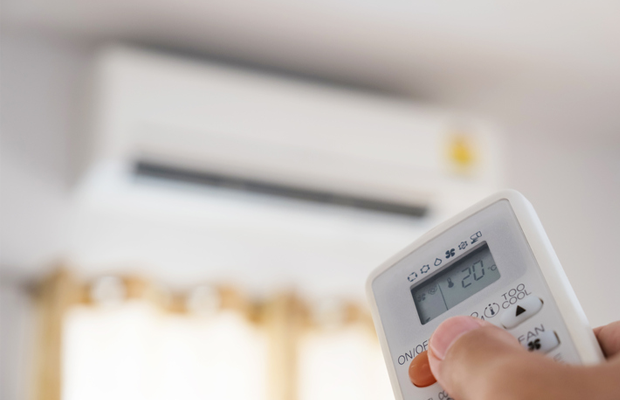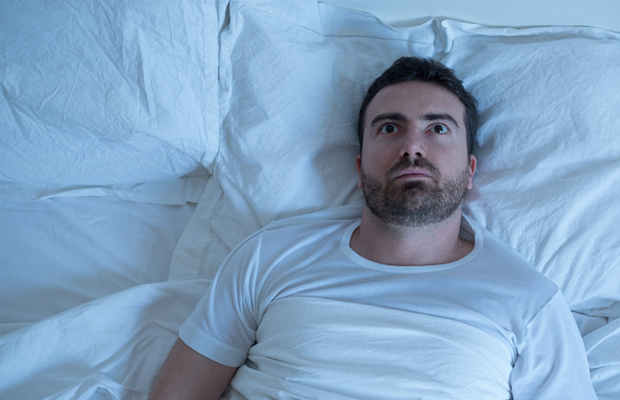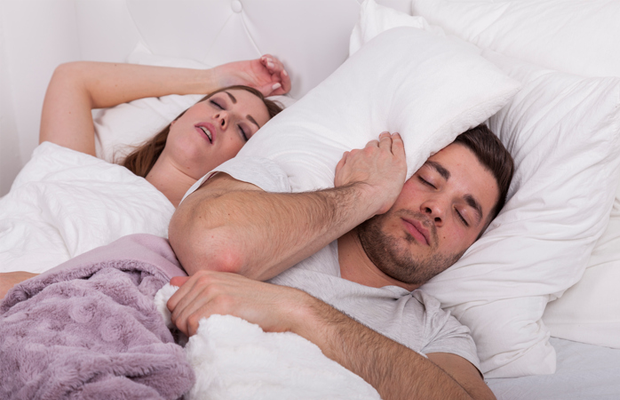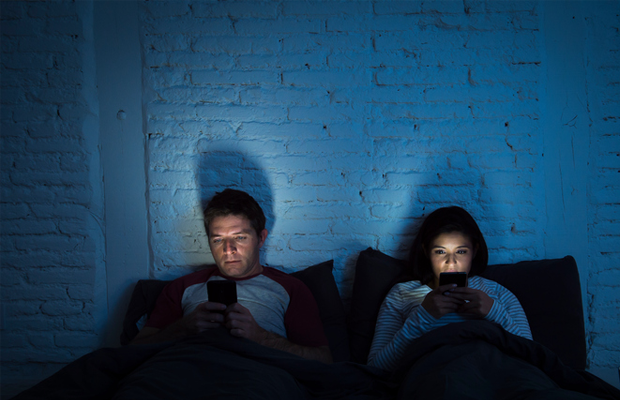Feel like you need to catch up on some sleep? Better hurry. Lack of sleep can disrupt your immune system, metabolism and cognitive function, and also increase your risk of hypertension, obesity and diabetes.
We’ve exposed six sneaky sleep snatchers; read on to find out how to put them to bed.
1. A hot bed
Sure, during sex you want things to heat up. The rest of the time, though, you should keep your cool.
Keeping your indoor temperature between 20 and 23°C promotes solid slumber, says psychiatrist and sleep specialist Dr Tracey Marks, author of Master Your Sleep.
Your body clock regulates your core temperature, and its fluctuations tell you when to sleep and when to wake up, she says. “You’re coolest in the middle of the night, when sleep is deepest.”
If you’re too warm, your internal alarm assumes it’s time to rise, and sleep becomes fitful.
Rest easy: If the idea of cooling your entire house gives you nightmares, consider installing a “slave thermostat” to regulate only your bedroom temp. You can also tackle the problem lying down by using 400-thread-count cotton sheets – they’re breathable but soft.

Read more: In honour of World Sleep Day, here are seven products to help you snooze better
2. Money worries
A seemingly endless economic recession can swipe your sleep with the speed of a free-falling retirement fund. “Decreased financial resources leads to worry over paying bills, and you may be required to work more,” Dr Marks says. “The physical and mental overload increases activity in your brain, causing you to ‘think yourself awake’.”
This is when frustrated insomniacs often resort to distraction tactics, such as television. But even though watching TV may calm your racing mind, the flickering light will interrupt secretion of the sleep hormone melatonin, causing a less-than-restful night.
Rest easy: You’ll need to wage chemical warfare. Stress triggers the release of the hormone cortisol, which has been linked to insomnia, says Dr Marks. Endorphins, the brain’s “happy chemicals”, have a relaxing effect. Sex or masturbation causes a rush of endorphins, but there’s an even quicker fix – humour. Try watching a funny three-minute video on YouTube, Dr Marks suggests.
To avoid stimulation from the light of your screen, install F.lux (stereopsis.com/flux), which dulls its glow to a warm hue at night. If you still wake up fretting in the night, try counting sheep. Seriously. Counting occupies space in your brain’s “articulatory loop”, the part that processes ongoing information, according to a 2010 study review in Insomnia and Anxiety. The loop’s capacity is limited, so the fluffy guys crowd out unwanted thoughts.

3. Hellish heartburn
If daytime heartburn is a pain, a midnight attack is a nightmare. “It can stir you awake, often multiple times throughout the night,” says Dr William Orr, a clinical professor of medicine at the University of Oklahoma. Symptoms of gastroesophageal reflux disease, or GERD, occur when the valve between your stomach and oesophagus malfunctions, allowing acid to seep past.
Some patients wake up choking or coughing, while others don’t consciously rouse but still feel drained in the morning. People with night-time heartburn often wake up with a bitter taste in the mouth or a sore throat.
Rest easy: Beyond avoiding oversized meals and spicy food before bed, try a sleeping wedge to elevate your head a few centimetres above the rest of your body. “It’s a lot easier for acid to creep out of your stomach and into your oesophagus if you’re lying flat,” Dr W Christopher Winter says.
If you like to sleep on your side, curl up on your left side. On you right side, the sphincter between your stomach and oesophagus may stay open longer, letting acid flow freely, a study review in the Archives of Internal Medicine found.

Read more: 8 foods you had no idea could put you to sleep
4. A squirming bedmate
A limb-flinging, snoring, blanket-stealing partner will undeniably disrupt your sleep, but your bedmate may also be guilty of subtler offenses. Your partner’s teeth grinding, frequent bathroom trips or even body heat can also spoil your slumber, says Dr Winter.
Rest easy: If she tosses and turns, top your mattress with memory foam, which won’t shift with her body. Too warm? Choose a mattress with pocket coils; these aren’t tied together, so movement won’t create a chain reaction. If she’s a kicker, ask her to sleep on her back or stomach.
“On her back, it becomes more of a toe-tapping movement,” says Dr Winter. Or consider “sleep vacations” – sleeping apart a few nights a week. “You’re ensured sound sleep, and there’s no guilt, because these are set nights,” Dr Winter says.

5. Bad air
Love those pretty red sunsets in your town? Many times they’re caused by air pollution, which may be seeping into your home and keeping you awake long after the sun dips below the horizon. According to a recent study from Harvard, poor air quality can increase your risk of disordered sleep breathing – repeated lapses in respiration during the night.
“Air pollution increases inflammation. This may make your throat more likely to close and your oxygen levels to fall during sleep,” says study author Dr Susan Redline. The condition affects up to 17% of adults.
Rest easy: HEPA filters can help, but only if you choose the right one. Standard HEPA filters offer a “minimum efficiency reporting value” (MERV) of one to four. But you should upgrade to a higher-efficiency MERV 13 filter that also traps tinier particles (which can travel deeper into your lungs). If you have allergies or asthma, consider importing a GAPA filter, a more powerful filter that uses electrostatic energy to attract fine particles.

Read more: A sleep doctor reveals the four fastest ways to stop snoring
6. Smartphone addiction
Emailing and checking sports scores are all stimulating activities that prevent you from winding down, Dr Winter says. The worst part? The Pavlovian response to a “new message” sound. “If you hear the tone, it’s irresistible,” he says. Even a quick check wakes your brain and your body. “It’s a light box that you’re shining into your eyes at 11pm,” Dr Winter says. “Your body is seeing a strong trigger that it’s daytime.”
Rest easy: Break your addiction by using a password on your phone and changing it once a week, suggests Dr William Pollack, an associate clinical professor of psychiatry at Harvard medical school. This forces you to pause before accessing the phone, breaking a behaviour that’s often on autopilot. You’ll mentally register what you’re doing, which helps control the habit. Check the phone once an hour or so before bed, and then cut yourself off, he says.

This article was originally published on www.mh.co.za
Image credit: iStock

























